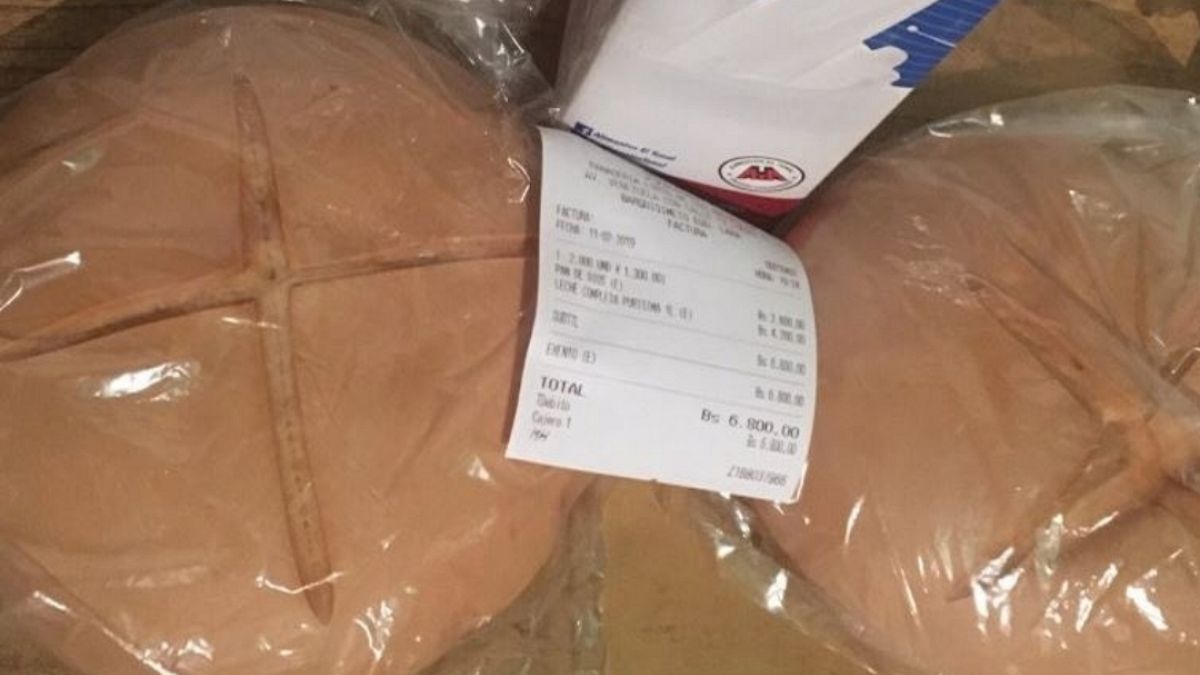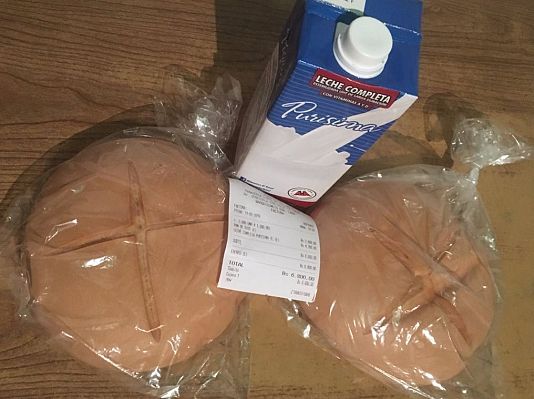#TheCube | "Hyperinflation is too great for families to feed themselves." Amid a political crisis and growing economic collapse, what is hyperinflation like for Venezuelans? The Cube reached out to social media users who told their stories through receipts.
Venezuela has been gripped by economic collapse and political crisis. After years of financial strife, hyperinflation has reached a devastating level, with the IMF estimating that inflation will reach 10 million percent in 2019. The crippling of a once affluent, oil-rich nation was exacerbated by plummeting oil prices in 2014 — its hard currency lost significant value with the onset of the US fracking industry.
Venezuela has the largest known oil reserves in the world and yet the Venezuelan bolívar has tanked, rendering it essentially worthless. In August 2018, Venezuela's president Nicolas Maduro devalued the currency, removing five zeros off in an effort to instil stability. Professor and Economist Steve Hanke from John Hopkins University called the move a "scam" at the time on Twitter, adding: "Redenomination will be like going under the knife of one of Caracas’s famed plastic surgeons. Appearances change, but, in reality, nothing changes." Months on, the currency facelift has done nothing to ease an economy in freefall.
It may be difficult for those outside the country to understand what such devastating hyperinflation means for the Venezuelan people. The Cube asked Venezuelans on social media how their lives have been impacted amid a geopolitical crisis.
A story told by receipts
Álvaro is a computer engineering professor in western Venezuela with 24 years experience, placing him among the most highly paid professionals in the university. He brought The Cube along the aisles of his local shops, reflecting the real cost of hyperinflation to locals.
At the time of publication, Álvaro's salary stood at 37,255 bolívars per month (€10.00) using the Venezuelan central bank conversion rate. At the supermarket, one litre of milk cost 4,200 bolívars or 11% of his monthly salary. Meanwhile, 1kg of milk powder cost 19,995 bolívars — over half of his salary.
Álvaro's story reflects a common tale in Venezuela, with his life savings sunk following a catastrophic decrease in his salary to just 2% of what it was worth 18 years ago.
"Hyperinflation is too great for families to feed themselves," Álvaro told The Cube. Minimum wage in Venezuela is 18,000 bolívars, meaning that a litre of milk (shown above) could cost a Venezuelan a quarter of their monthly wage.
'They stole these 20 years of life from all Venezuelans'
"They gave us a poor quality of life, they prevented us from having many professional opportunities and with them, they made Venezuela not advance but recede in all aspects: social, economic, industrial, educational, university," Álvaro told Euronews.
The reality of hyperinflation
An information engineer posted a thread on Twitter about the practicalities of hyperinflation for Venezuelans. With 2 litres of orange juice costing 5000 bolívars and a cheap coffee priced at half that, a person on minimum wage could only afford just over 7 coffees and 4 juices per month.
Inti, the father of an 8-year-old child, said that this serves as a reference to "situate ourselves in a reality that is really devastating". When people go to the bank, they spend their money immediately, not knowing what their money will be worth as the days pass by.
'Prices have risen so much that it is impossible to keep pace'
In reality, basing price points on the bolívar is a useless exercise with constant fluctuations and an established black market. "It is no longer about remembering a price or having a perspective on when something is cheap or expensive. It is difficult to make the decision to buy based on the price," said Inti.
"Older people have a lot of trouble. The most outgoing ask for help or advice in line to pay, others pass the product by the barcode reader and seeing the price their eyes are filled with a void and an outrage and a misunderstanding that had never seen," he added. Inti said that when his child grows up, he hopes to see food made affordable for all Venezuelans.
A retiree in Caracas
Luis is retired and widowed, living in the country's capital Caracas. One of the receipts he sent to The Cube reflected a list of everyday items, from toilet paper to soap — their total cost came to over 4 times a monthly minimum wage. "I survive because my son sends me money," he told The Cube. "All my life's savings were destroyed by hyperinflation".
Prices double almost daily
Both of Luis' older sons have emigrated, although his two younger children remain in Venezuela. He is only able to afford an equivalent of 1kg of cheese from his monthly retirement stipend. "As a father, I am able to provide them with the basics: education, health and nutrition, thanks to the support of their siblings who emigrated. If it was just me, it would be impossible," he said.
Venezuela's oil-dependent economy looks set to continue on a downward trend. A majority of EU countries have recognised Juan Guaido as interim president, with Venezuela's National Assembly calling for fresh and fair elections. This has left Maduro facing intense international pressure with hundreds of thousands of people in Venezuela taking to the streets.
Venezuela is a country that faces an intense upward battle to rebuild its devastated currency and calm hyperinflation. Maybe then, receipts will tell a different story.

